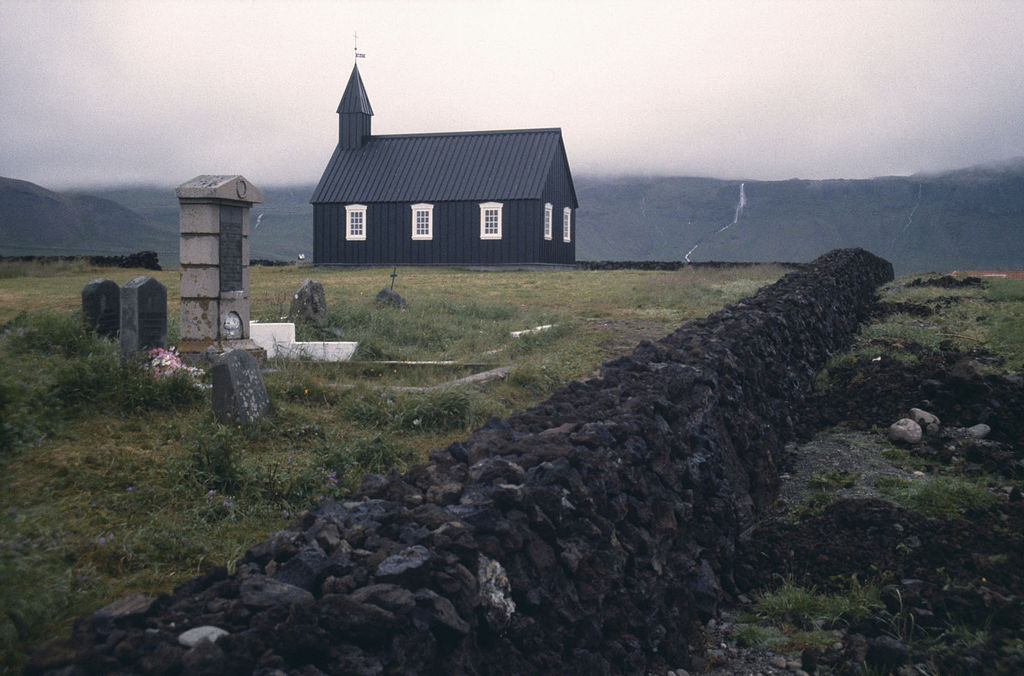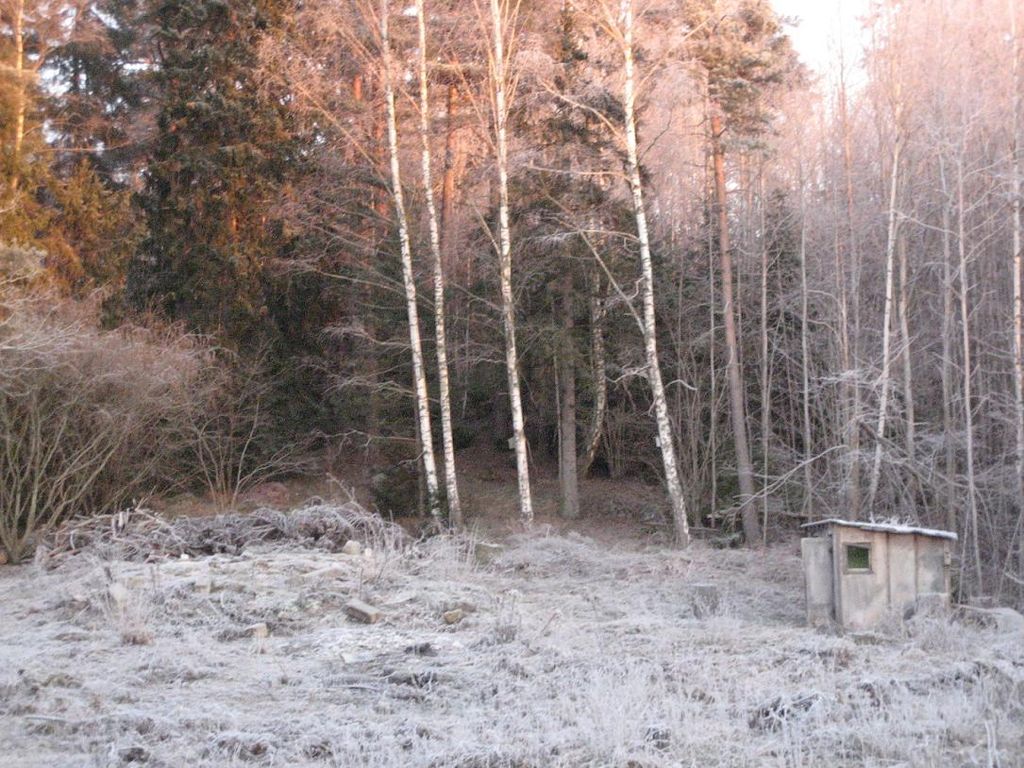
Church near Búðir (Snæfellsnes), Iceland: photo by Till Niermann, 2 August 1989
First I built on sand, then I built on rock.
When the rock caved in
I no longer built on anything.
Then I often built again
On sand and rock, as it came, but
I had learned.
Those to whom I had entrusted the letter
Threw it away. But those I paid no attention to
Brought it back to me.
Thereby I learned.
What I ordered was not carried out.
When I arrived I saw
It was wrong. The right thing
Had been done.
From that I learned.
The scars are painful
Now it is cold.
But I often said: only the grave
Will have nothing more to teach me.

December frost in Sweden: photo by Sigurdas, 21 December 2007
Bertolt Brecht: Der Lernende (c. 1935), translated by Lee Baxendall, from Bertolt Brecht: Poems 1913-1956 (1976)
The deeper scars still, in my experience, are when the rocks held firm under what I'd built; my letters were accepted & verified; when my order was followed and had gone according to my design. When my best-laid plans were executed beautifully, only to discover my design of success was what was faulty. The vision to take in the full horizon of expectations, now that would be a gift.
ReplyDeleteTom,
ReplyDeleteOooooh, those clouds against that ridge above church in Iceland, graves in foreground, what a scene ("only the grave will have nothing more to teach me") --
1.2
light coming into cloud above blackness
of ridge, song sparrow calling in field
in foreground, wave sounding in channel
those identified, different
conventional elements
relative, suggest the scene
has shifted, a moment
first orange of sun rising above ridge,
gulls circling above windblown channel
I wonder if Brecht saw how 'theologoical' is the "sand and rock" language.
ReplyDeleteToday's lesson: Building on Experience
ReplyDeleteObserve the wall of countless black stones surrounding this cemetery.
That cemetery wall of black rocks, that grim burial yard, that stream bisecting the hill in the distance all make me remember the cold, enigmatic, remote aspect of Brecht, and the first rays of sun touching the winter frosted trees make me remember the sharpness of the humour, the refreshing objectivity, and the clear grasp of what it means to be human.
ReplyDeleteSome more Brecht:
Brecht: Die Opiumräucherin
Brecht: The Mask of Evil
Brecht: The Stone Fisherman
Helpful comments from all here ... kept the midnight oil burning.
A language of sand and rock (Walter Benjamin: A Lamp).
You have introduced me to so many wonderful poems and poets. This is another. Thank you.
ReplyDelete"akespilt"
If there weren't such "strict rules" I'd say this was a haiku:
ReplyDelete"That cemetery wall of black rocks, that grim burial yard, that stream bisecting the hill in the distance all make me remember the cold, enigmatic, remote aspect of Brecht, and the first rays of sun touching the winter frosted trees make me remember the sharpness of the humour, the refreshing objectivity, and the clear grasp of what it means to be human."
You put into words - cold, enigmatic, remote - and images a feeling I have felt - there is a real magic, and consummate art, there.
With Brecht it is tough love - but love it is.
thanks,
Don
Robb,
ReplyDeleteWhen akesplit, who was left in the boat?
Throb and Pinch-Me.
Don,
Tough love gets BB to a T.
With some great poets it is a soft heart under a hard exterior.
But BB could never be accused of softheartedness OR softheadedness.
The love appears to be directed toward the world.
You've put me in mind of a particular poem. Gods be willing I shall try to put it up soon.
Thanks!